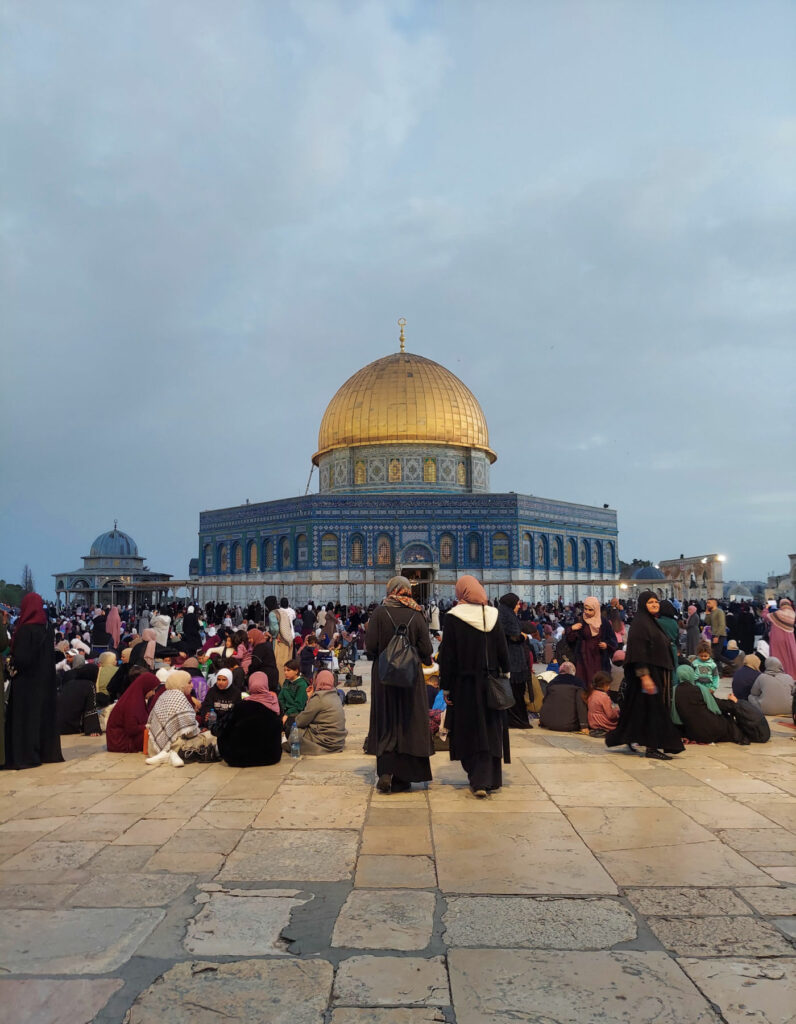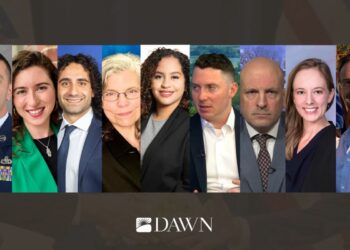Zaha Hassan is a human rights lawyer and a fellow at the Carnegie Endowment for International Peace. Her research focus is on Palestine-Israel peace, the use of international legal mechanisms by political movements, and U.S. foreign policy in the region. Previously, she was the coordinator and senior legal advisor to the Palestinian negotiating team during Palestine’s bid for U.N. membership, and was a member of the Palestinian delegation to Quartet-sponsored exploratory talks between 2011 and 2012.
Spring is known as the most beautiful time of year in the Holy Land, when wildflowers dot the rolling hills of the Galilee and the West Bank, and white almond blossoms overflow tree branches, making everything seem new and possible. The confluence of Ramadan, Passover and Easter in the city of Jerusalem, a place the three monotheistic faiths hold sacred, should have also filled the season with a measure of hope. This year, however, tension shrouded communities and landscapes, traversing checkpoints and the Green Line nominally separating Israel from the occupied Palestinian territories.
*
Physical space has been shrinking for Palestinians between the Mediterranean Sea and the Jordan River for 75 years—sometimes in fits, like after the founding of the state of Israel, when three-quarters of the Palestinian population was forcibly displaced, and sometimes in creeping fashion, like in recent decades as Palestinians have been relegated to isolated enclaves within the West Bank and in Gaza. And now, Israel's new ultranationalist government has indicated an intention to accelerate the process of consolidating Jewish settlements in the West Bank to take advantage of its newfound political power, heightening the risk of a second, mass Palestinian displacement.
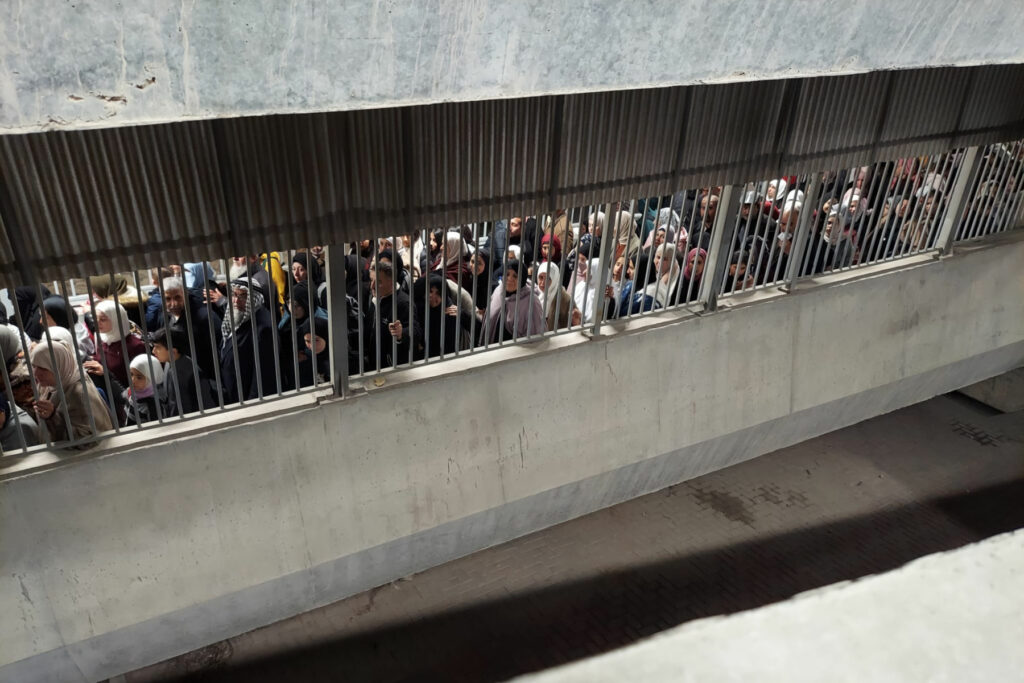
The competition for space is visible in Jerusalem, where Israeli police prevented worshipers from performing late-night prayers known as i'tikaf in the al-Aqsa Mosque during Ramadan last month, brutally beating them at times to clear the area for hundreds of extremist Jews to conduct tours in the mornings. The number of Christians allowed to participate in Easter services at the Church of the Holy Sepulchre was also restricted by Israeli police. In Al-Bireh outside Ramallah, where many Palestinian Authority ministries are located and where the Palestinian president resides, new road systems and housing units are being built by Israel, directly through Palestinian communities, which will connect settlements and outposts to each other and to Israel, with the aim of forever foreclosing a two-state solution. In Huwara, on the edge of Nablus, where Israeli settlements exist in close proximity to Palestinians, Israeli authorities are instrumentalizing settler violence to clear the way for a new segregated highway.
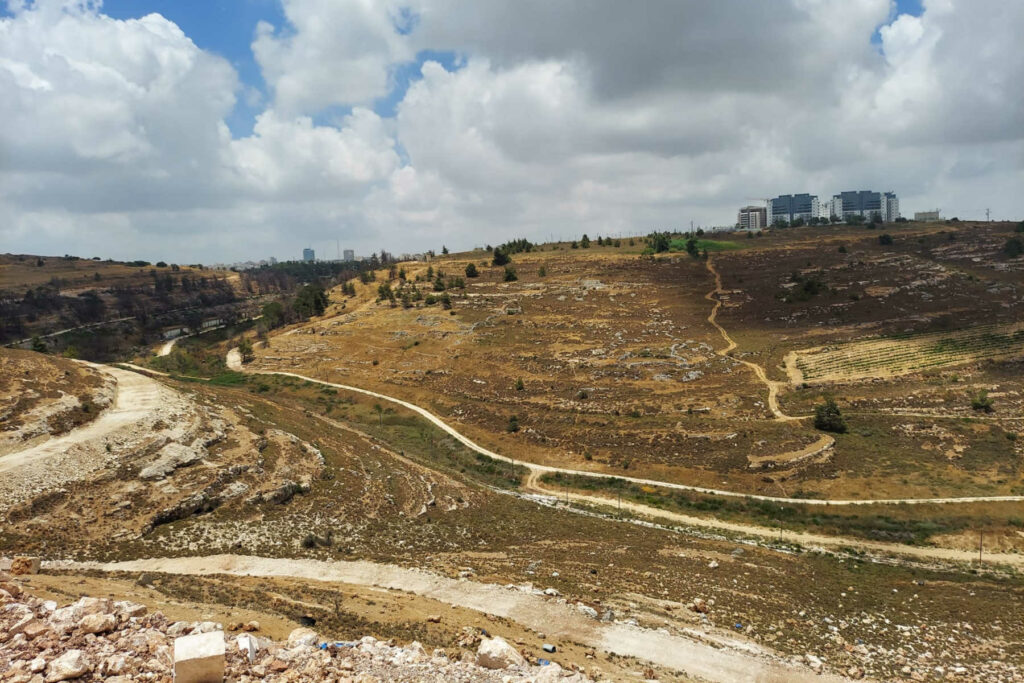
In the southern parts of the West Bank, where Palestinians have been confined behind walls, gates, fences and locked turnstiles, and are subjected to a strict permit system—and now, draconian facial recognition technologies—dictating their freedom of movement by Israeli authorities, resistance is visible, even if in small ways. In Bethlehem, symbols of oppression are turned into art to attract a kind of alternative tourism, and a local marathon has become an opportunity to raise awareness about the lack of freedom of movement and travel.
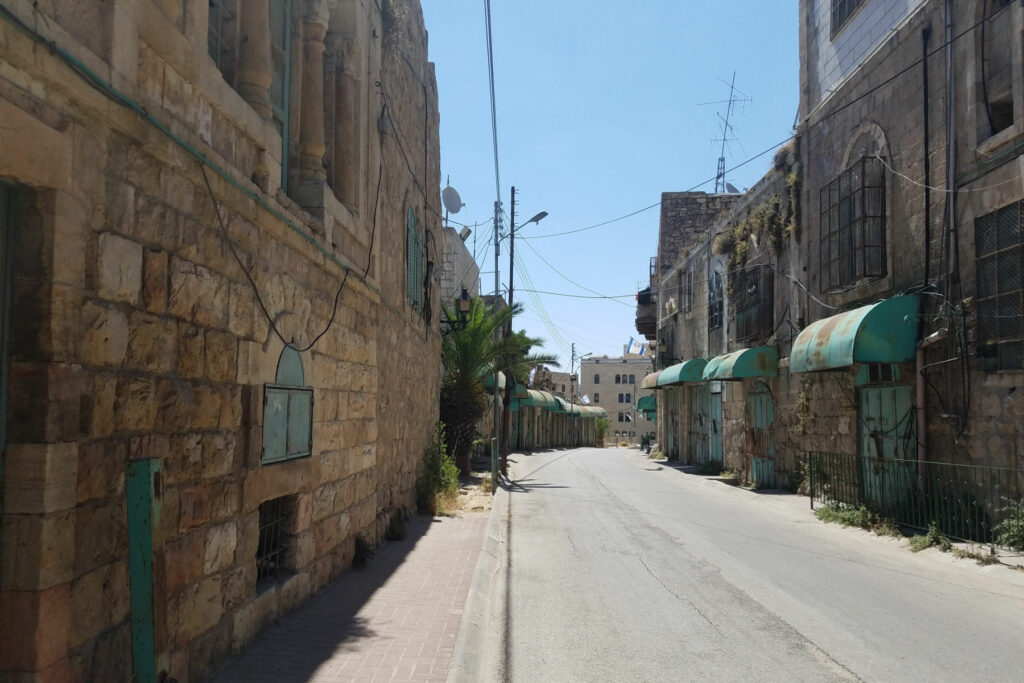
In Hebron, the clearing of space for Israeli settlers has produced an eerie silence and emptiness in what used to be the bustling heart of its Old City. Following the massacre by Baruch Goldstein, the American-Israeli extremist who killed worshipers in Hebron's Ibrahimi Mosque during Ramadan in 1994—a time when it overlapped with the Jewish holiday of Purim—the mosque was partitioned between Muslims and Jews, as parts of the city were also completely closed to Palestinian foot traffic and vehicles under a U.S.-brokered agreement. Now, with Jewish supremacists in the new Israeli coalition government—one of whom, Bezalel Smotrich, is responsible for civil affairs in the occupied West Bank and has called for wiping out entire Palestinian villages, following a settler rampage in Huwara in February—Palestinians not only fear the Hebron-ization of the al-Aqsa Mosque and the surrounding area of Jerusalem's Old City. They also fear for their lives.
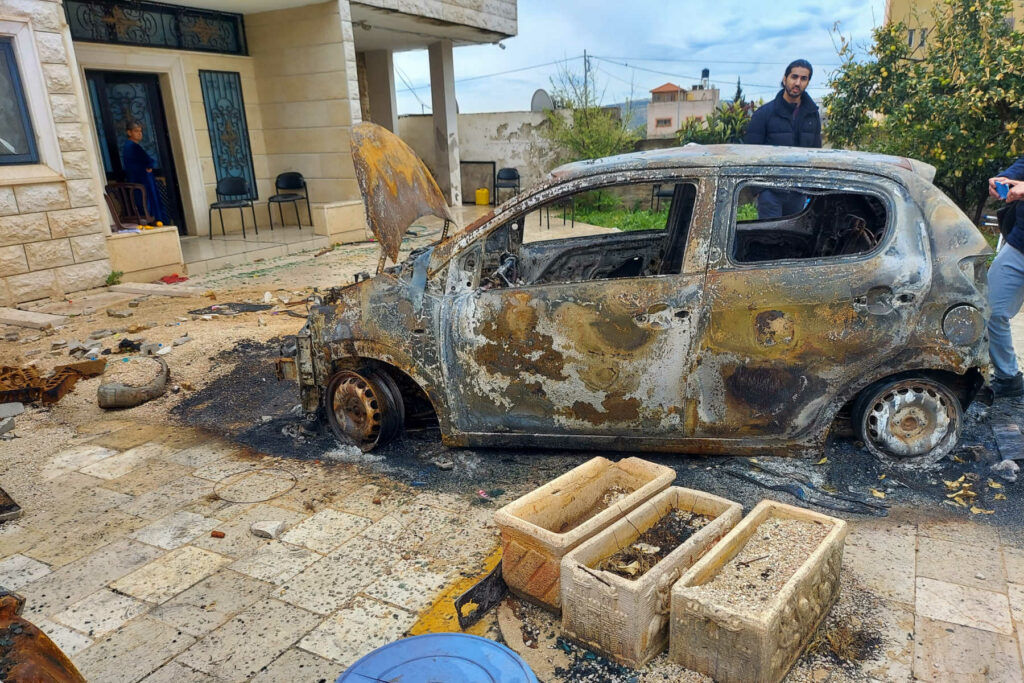
If there were signs of hope and new possibilities this spring, they might have been found in the widespread protest movement in Israel that organically formed to oppose the Netanyahu government's plan to neutralize the Israeli judiciary, the only institutional check against governmental overreach. But the rallying cry to save Israeli democracy did not include calls for equal rights for all under the law and, therefore, did not mobilize Palestinian citizens of Israel in significant numbers. Jewish nationality, rather than citizenship, holds primacy in Israel—so says the quasi-constitutional basic law of 2018, the so-called "nation-state law" that defines the state's ethnic-religious identity as exclusively Jewish. The same Supreme Court that thousands of Israelis have taken to the streets to defend from far-right "reform" upheld that law, effectively sanctioning Israel's separate and unequal legal regime for Palestinians. But Jewish supremacy had already been implicitly approved by Israel's highest court in 2003 and again in 2013 when it ruled that protecting Israel as a state for Jews required negation of the concept of Israeli nationality, which might have formed the basis for equality between Jewish and Palestinian citizens of Israel.
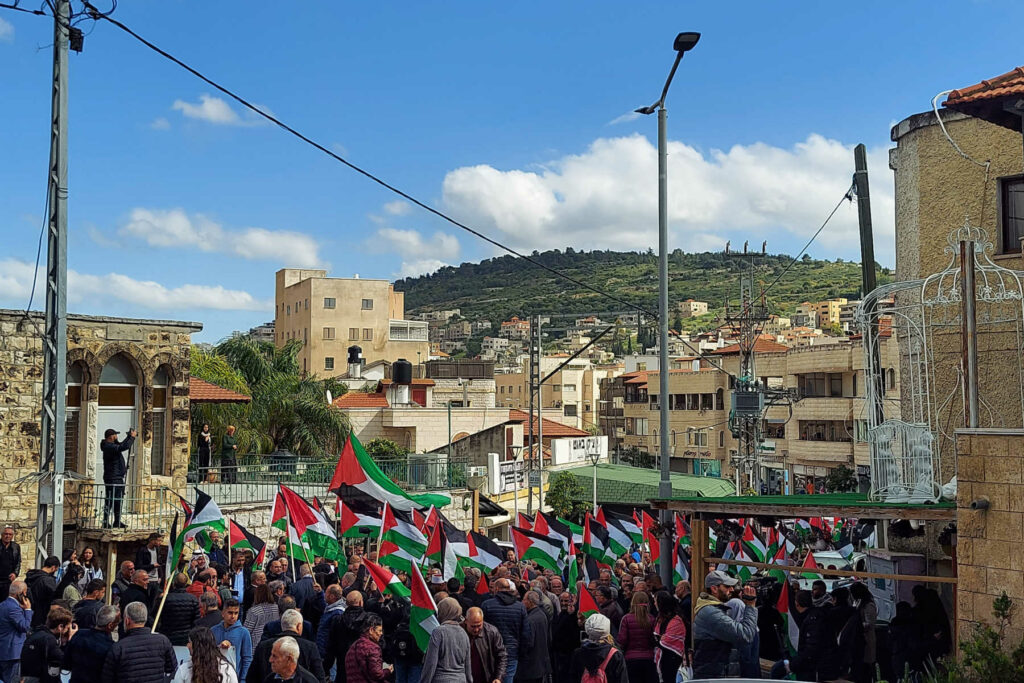
With the privileges and immunities of citizenship flowing from Jewish identity rather than Israeli citizenship, thousands of Palestinian citizens of Israel bucked the "pro-democracy" protests and chose instead to participate in Land Day. It is the commemoration of the 1976 killing by Israeli police of six unarmed Palestinian citizens who were protesting government land confiscations in the Galilee and the Naqab (Negev), a plan that aimed at breaking up the contiguity of Palestinian communities in the north and south of Israel in favor of Jewish-only housing developments. And in Sakhnin, Arrabe and Deir Hanna—Palestinian villages within Israel's recognized borders—Palestinian flags flew in defiance of Israeli authorities who have shown an increased intolerance for any symbol of Palestinian nationhood.
Physical space has been shrinking for Palestinians between the Mediterranean Sea and the Jordan River for 75 years—sometimes in fits, and sometimes in creeping fashion.
- Zaha Hassan
The village of Huwara is a community of just over 7,000 that lies along Road 60, the main north-south thoroughfare connecting the north of the West Bank to the south. Around 62 percent of Huwara lies in Area C, under the Olso Accords, making the Israeli military responsible for security in most of the village, which is home to many auto repair shops and scrap yards.
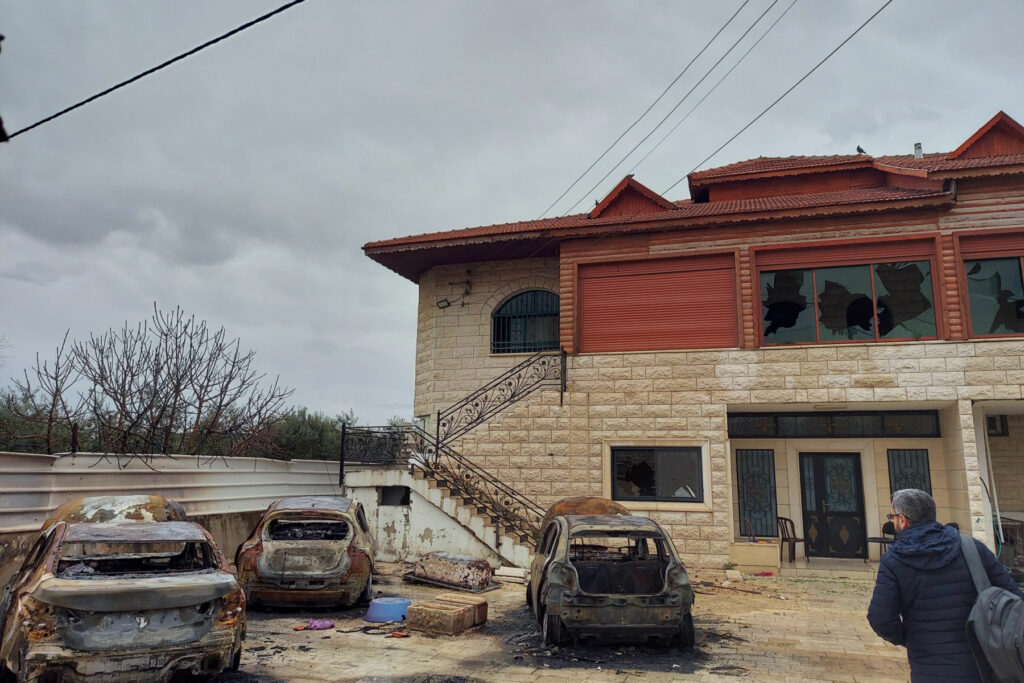
Local officials and eyewitnesses recounted how for more than an hour before extremist settlers set parts of Huwara and the surrounding Palestinian villages on fire, Israeli soldiers took up position and prevented Palestinians and the Palestinian Authority's civil defense from coming to the aid of residents. Many of the settlers involved in the attack are known by Palestinians and come from Yitzhar settlement, located on a hilltop overlooking Huwara and Road 60. Six other outposts, illegal under even Israeli law, are also located in the area. A major new segregated highway will cut through Road 60, requiring the confiscation of Palestinian land. The settler attack has made Palestinians leery of going to Huwara for shopping or to repair their cars.
Hebrew-language signage sits along the road to al-Bireh and Ramallah, announcing new Israeli settlement units, which will be built in Bet El, already home to more than 5,700 settlers. The settlement is located partly on al-Bireh municipal land and partly on land belonging to neighboring Palestinian villages. Bet El is the childhood home of Smotrich, the Jewish supremacist minister. New roads are being leveled to connect Bet El to surrounding Israeli settlements that dominate the landscape.
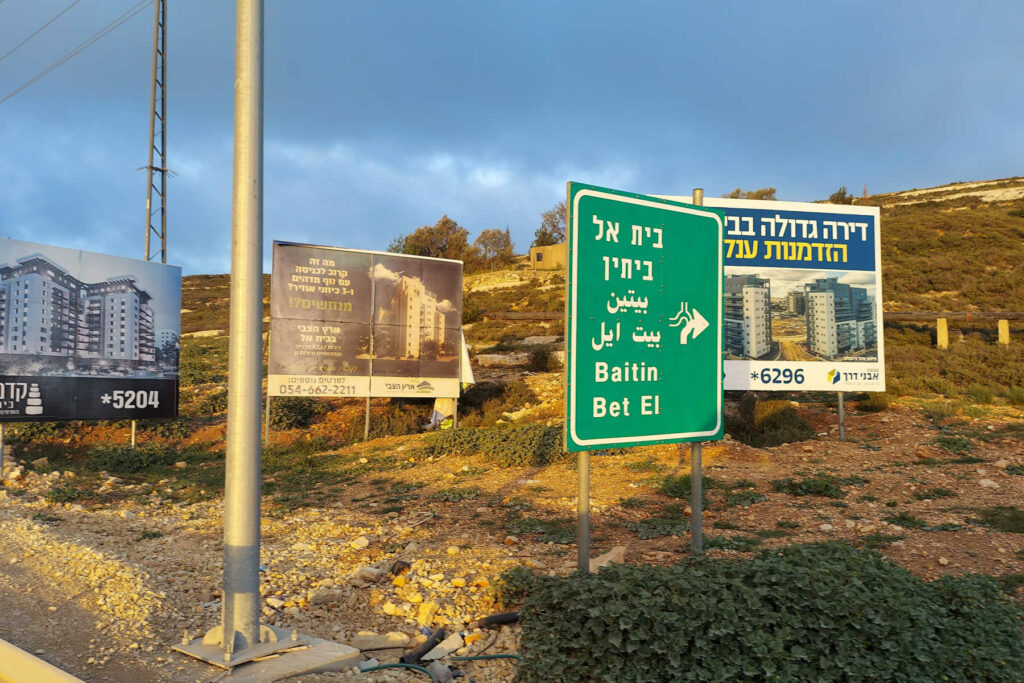
The natural growth of Palestinian communities is prevented by a system of walls, checkpoints and expanding Israeli settlements. In Bethlehem, the Separation Wall restricts tourism to the city and has devastated an economy highly dependent on international visitors. Bansky's wall art and The Walled Off Hotel and Museum, now the subject of the documentary "Walled Off," recently featured on CNN, tell the story of the colonization of Palestine in sometimes farcical ways in an attempt to bring visitors back to besieged Bethlehem. The Palestine Marathon, held annually in March, also aims to encourage tourism to Bethlehem and highlight how restricted freedom of movement is for Palestinians, in order to change the securitized public discourse about "the conflict" in favor of one that focuses on basic rights.
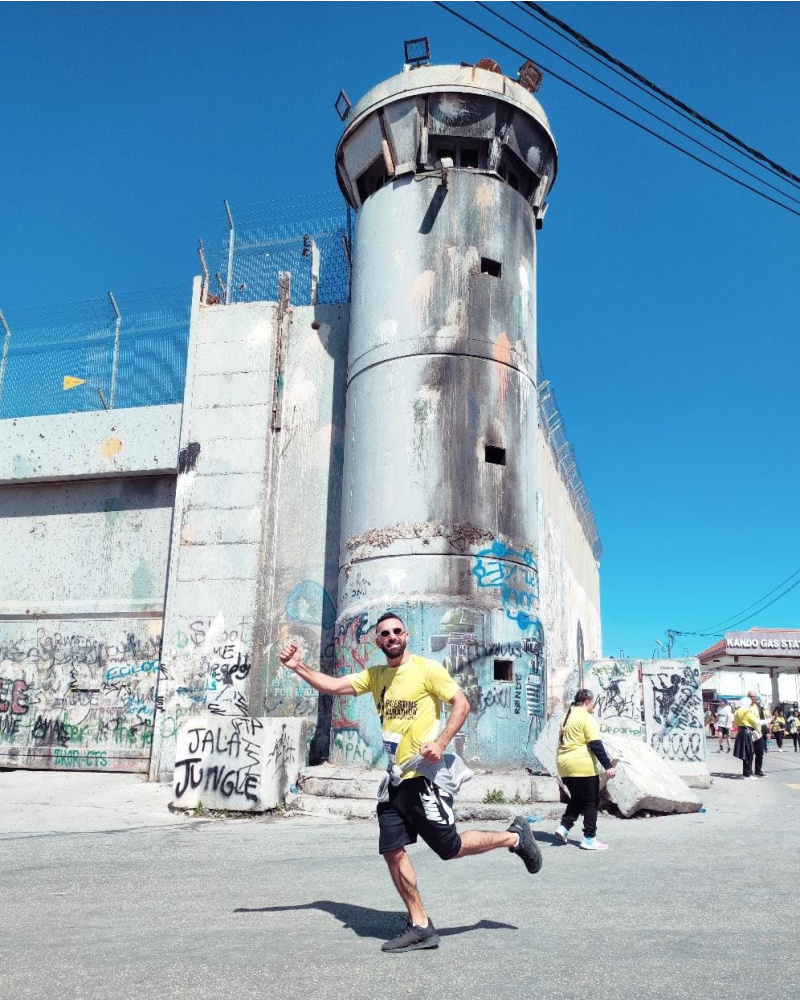
An imposing chokepoint that prevents the free movement of people and goods between the north and south of the occupied West Bank, Qalandiya checkpoint is a notorious daily reality for Palestinians. Only Israeli-plated vehicles may pass through the checkpoint, and only Palestinian ID holders with special permits may cross—but only on foot. As Palestinians return from Jerusalem in the evening, traffic comes to a complete standstill at Qalandiya, forcing many to forgo a taxi or bus once they are on the other side of the checkpoint. Instead, they walk further up the narrow, mostly one-lane road toward Ramallah to find transportation where the congestion has eased. What should be a 15-to-20-minute drive from Jerusalem to Ramallah can take two hours.
During Ramadan, vendors set up near the checkpoint's menacing watch towers to sell lighted balloons for Ramadan, in absurd juxtaposition with the grey slabs of the Separation Wall.
Palestinians not only fear the Hebron-ization of the al-Aqsa Mosque and the surrounding area of Jerusalem's Old City. They also fear for their lives.
- Zaha Hassan
On the second Friday of Ramadan, Israeli authorities allow more Palestinians to attend prayers in Jerusalem without requiring that they present special permits at the checkpoints. Tens of thousands of Palestinians take advantage of this rare reprieve from the movement restrictions to bring their families to Jerusalem's Old City, a trip that for most is a daylong affair. For many Palestinians, Jerusalem is the closest they will ever come to making a religious pilgrim because the costs of traveling to Mecca for the Hajj are too prohibitive.
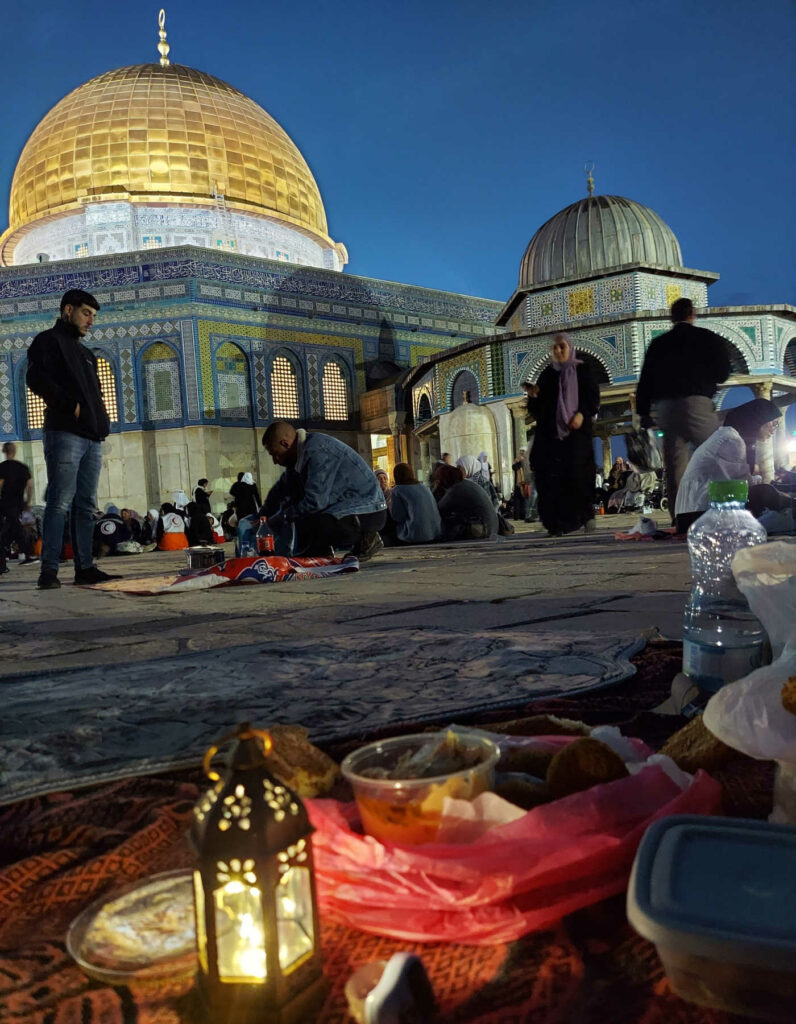
Because Palestinian ID holders are not allowed to cross the checkpoint by car or bus, Friday evening worshipers coming to Jerusalem for the special night prayers must walk compressed between hundreds of other worshipers toward the checkpoint turnstiles. But over the Passover holiday, from April 5 to April 8, the West Bank and Gaza crossings were completely closed, preventing Palestinians from accessing Jerusalem during the final days of Ramadan.
Following the 1994 massacre of Palestinian worshipers at the Ibrahimi Mosque, the ancient city was divided into two areas: H-1, under Palestinian security control, and H-2, under Israeli control. Approximately 33,000 Palestinians live among 850 Israeli settlers in H-2. Palestinians are prevented from walking on certain streets in H-2 and must pass through checkpoints and turnstiles while being subjected to extensive video surveillance. According to a recent report from Amnesty International, biometric information of the Palestinian residents of Hebron is being captured and stored in a database in order to automate restrictions on their movement. On Shuhada Street, which is off-limits to Palestinian pedestrian traffic, Palestinian homeowners are not permitted to enter their homes from the front door if the door faces that street. Only Jewish settlers or international visitors may use Shuhada Street.
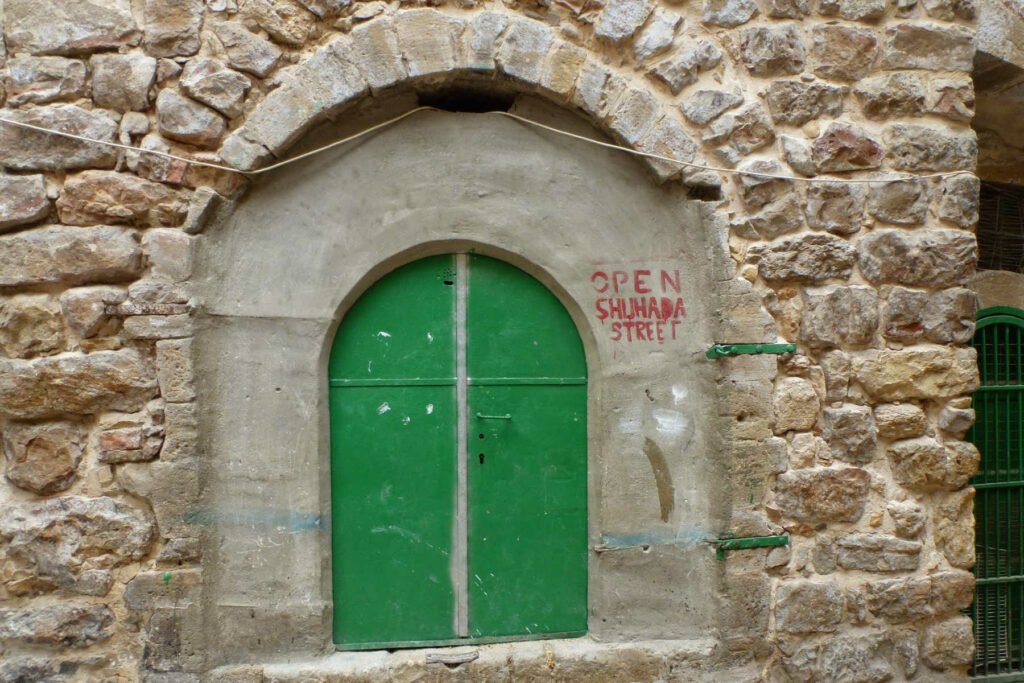
Less and less space exists for Palestinian development in East Jerusalem as new Israeli settlements go up. In Pisgat Zeev, built on the lands of the Palestinian villages of Beit Hanina, Shufat and Hizmeh, new Jewish-only multistory housing units are being built along the separate road that connects Pisgat Zeev with the settlement of Neve Yacov, the site of a Palestinian attack earlier this year that killed seven Israelis leaving a synagogue. In April, Israeli authorities approved an additional 730 housing units in Pisgat Zeev.
